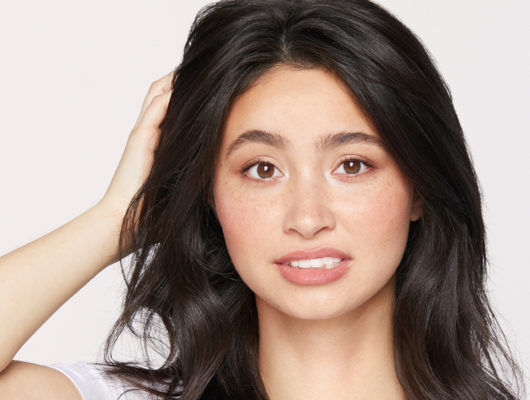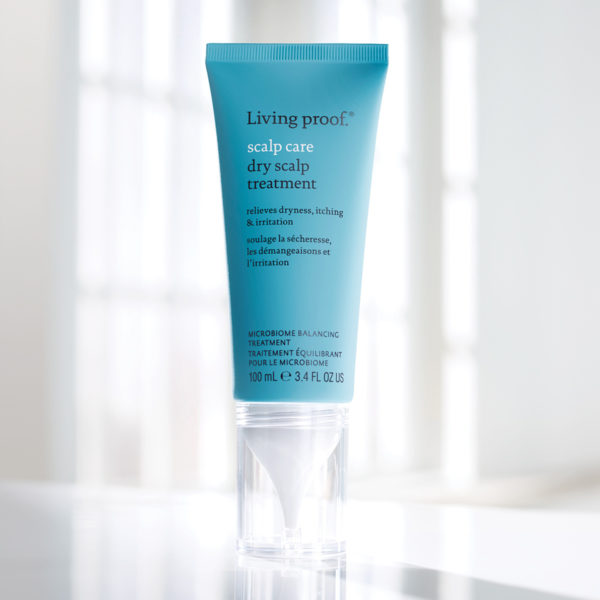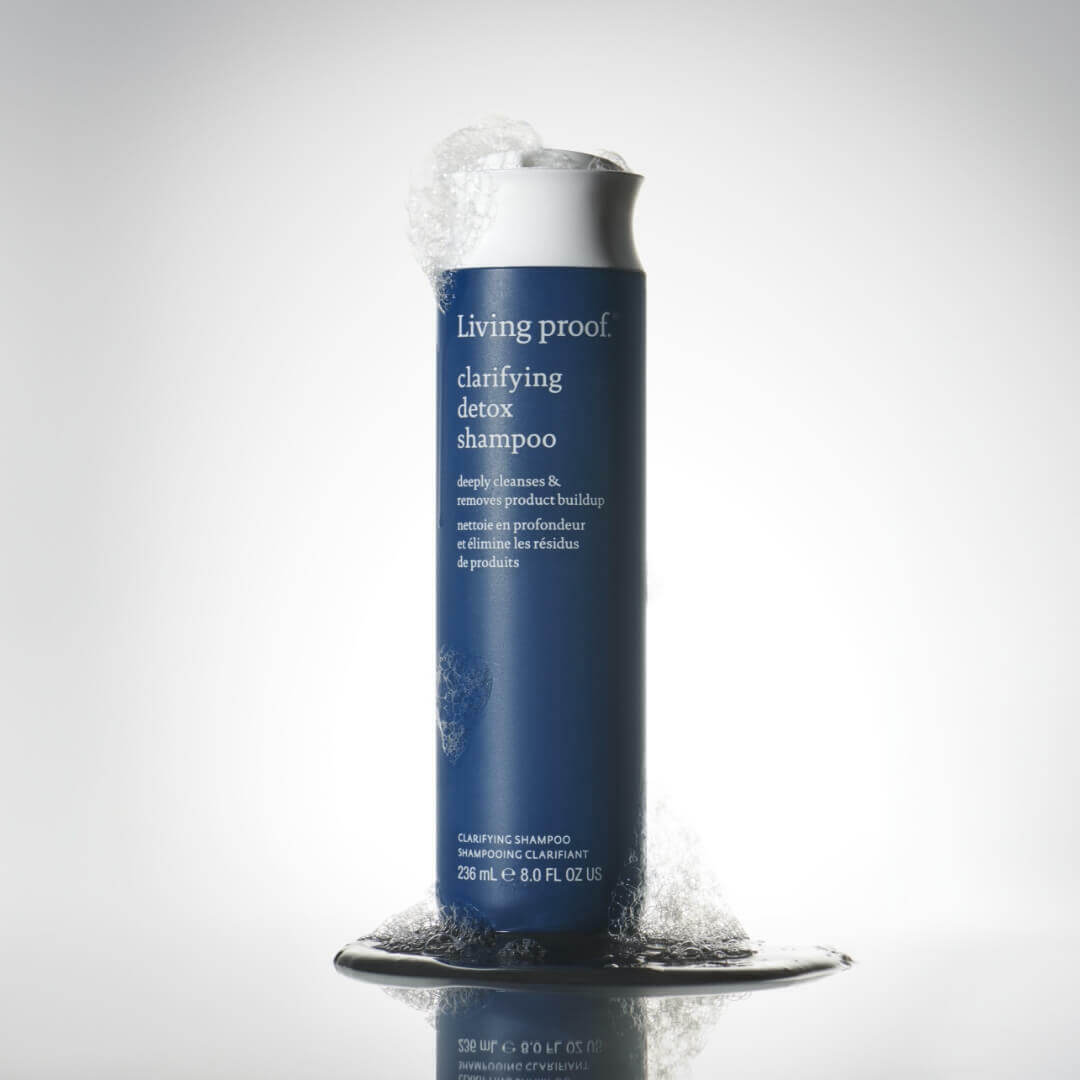
What Causes Dry Scalp?
When your scalp feels itchy, flaky, or irritated, it’s likely because it’s dry. Unlike other hair woes, dry scalp can affect anyone. It can plague any hair or skin type and can arise at any time. A change in scalp condition can be triggered by any number of things from the weather to stress, and determining the cause of your dry scalp is the first step in treating it.
Dry scalp is a skin condition caused by an imbalance of good and bad bacteria on the scalp. This, however, can be the result of a cocktail of factors from the environment you’re living in to the products you’re using. If you’re wondering “why do I have dry scalp?” we’ve got answers. Read through the most common dry scalp causes to determine which one is plaguing you. From there, you can find a dry scalp treatment that’s best for you.
The Weather
When the weather turns cold outside, and the heat is turned up inside, it’s a recipe for dryness. You probably notice this on your skin in different areas, but may not notice that your scalp is experiencing dryness too.
Allergies
Did you know allergies could be at the root of your dry scalp problems? There are many ingredients commonly used in hair care products and dyes that can cause allergic reactions. This type of reaction is called contact dermatitis and can cause scalp dryness, itchiness, and flakiness. To determine what you are allergic to, remove one product from your routine at a time to see if the dry scalp symptoms subside. You can also visit a dermatologist who can test for certain allergies.
Stress
Stress is one of the unfortunate conditions we all experience from time to time, but it doesn’t just plague our minds. It can cause acne, joint pain, sleep problems, and yes, even hair and scalp issues. Given the pandemic, it’s safe to say we’ve all been experiencing more stress than usual over the past year. As a result, you may have experienced scalp dryness or even hair loss.
Overwashing
If you’re looking for an excuse to wash your hair less, this is it. Washing hair too frequently can result in dryness, as it strips the natural oils and moisture that help you maintain a healthy scalp and nourished locks. Frequent washing may not cause dryness in the summer months, but may when the air is cold and dry during the winter.
Hair Products
When you pile on hair products day after day without washing, they can build up on the scalp and cause it to become dry and flaky. You'll want to make sure you're using products with formulas that are good for your hair, as well as cleansing your hair of these products regularly.
Scalp Psoriasis
Psoriasis is a skin condition that results when an excess of cells builds up on the surface of your skin and as a result, creates scaly, dry patches that itch. Psoriasis can appear as dandruff flakes but in severe cases, you may need to be prescribed a medicated shampoo to treat this scalp condition. When on your scalp, psoriasis can cause your scalp to shed large flakes, and become red and itchy.
While there are many reasons for dry scalp, they all manifest in the same sorry signs. If you have a dry scalp, you may be experiencing one or all of these symptoms:
Irritation
When the scalp lacks moisture, it becomes irritated. This may be the first sign you experience of a dry scalp before it begins to noticeably flake or itch.
Flaking
Dry scalp can cause the skin on the scalp to shed in small white flakes. However, a flaky scalp could also be the result of seborrheic dermatitis, AKA dandruff, which is actually the opposite of a dry scalp. Dandruff is the result of too much oil and sebum on the scalp, which blocks it from properly shedding dead skin cells. Instead, dead skin cells shed in larger flakes and appear more yellow in color. Seborrheic dermatitis should not be treated in the same way as a dry scalp.
Itching
Like other dry skin, a dry scalp is often an itchy scalp. Itching your scalp, however, isn’t the answer. It can increase irritation and produce flakes. If you have noticed that you have a flaky scalp that itches frequently, consider using a gentle shampoo to improve your condition. Once you have flaking, it can be assumed that you are also suffering from an irritated scalp.
Signs of Dry Scalp

Have you been searching to find not only the best hair products online, but also helpful information as to what helps dry scalp? There are dozens of reasons you may be experiencing symptoms from dry scalp, but thankfully the majority of these dry scalp causes, aside from medical conditions such as scalp psoriasis and dandruff, can be addressed with the same treatment. Yes, really. Whether it’s a hydrating shampoo or dry scalp treatment, we have you covered.
How to Treat Dry Scalp
As said before, there are many reasons you may be suffering from a dry scalp. The first order of business is to uncover the source of your issue. If your dry scalp is caused by a certain hair product, swap it out for one that has less harsh ingredients. If your scalp condition is caused by excess sebum, dermatitis, or psoriasis, you may want to talk to your doctor about using a medicated shampoo until your symptoms subside.
Our Scalp Care Dry Scalp Treatment provides immediate relief, but also lasting hydration so you can both treat and prevent dry scalp in one fell swoop. This hair product is a leave-in product that provides hydration and relief from all the dry scalp symptoms including flaking, itching, and irritation. For the best results, we recommend using the Dry Scalp Treatment three times per week for four weeks to start and then continue to use the treatment regularly after four weeks to maintain results.
With this in your beauty cabinet, dry scalp won’t get you down.



.png)